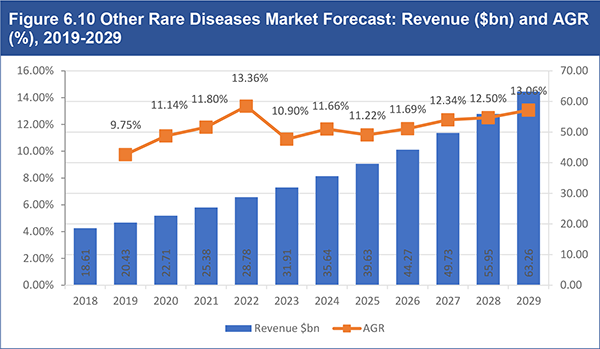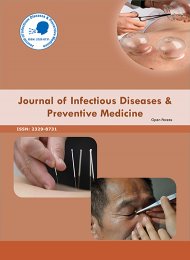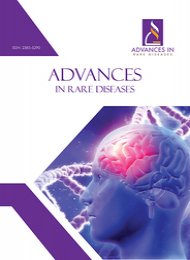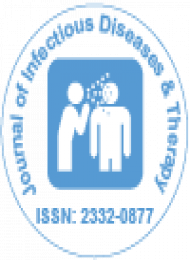Theme: Light up Show Your Stripes and Share Your Colours
Rare diseases 2024
We welcome you to the prestigious 9th Annual Summit on Rare Diseases and Orphan Drugs on 22-23 February 2024 in Zurich, Switzerland.
We take on the imaginative theme "Rare Diseases and Orphan Drugs", which is meant to suggest new thinking, processes and strategies that have a legitimate impact on how you work together and your agency. Management has leading experts in the field of rare diseases and orphan drugs.
Rare Diseases 2024 is the stage for renowned researchers, specialists, university professors, professionals and students, including the address. Presentations and publications, presentations and learning more, share your involvement in research and get name recognition and certifications marked by a world-class team of mentors.
No other occasion can provide a remarkable glimpse of keynote speakers, quality colleagues, and connection to content. This is an attractive opportunity for representatives of universities and institutes to cooperate with researchers. Passionate members can affirm their cooperation by strengthening the group with their partners.
We take a lot of privilege in inviting all the participants from all over the world to attend “9th Annual summit on Rare Diseases and Orphan Drugs” will be held during February 22-23, 2024 at Zurich, Switzerland which includes prompt keynote presentations, Oral talks, Poster presentations and Exhibitions related to Rare Diseases and Orphan Drugs. It serve as a platform between researchers from academia and health care centres enhanced by its well organized scientific sessions, plenary lectures, poster presentations, world class exhibitions, diverse symposiums, highly enriched workshops and B2B meetings.
Rare Diseases 2024 conduct presentations, distributes information, conducts meetings with current and potential scientists, make a splash with new drug developments, There are more than 6,8001 diseases classified as "Rare". While independently these entities are uncommon, as an association they are an important cause of chronic illness, disability and premature death in both children and adults. Rare Diseases meeting the academic and long-term research developments can be discussed enabling a comparison between different theories, concepts and approaches.
Target Audience:
- Pathologists
- Infectious Diseases Specialists
- Pharmacists
- Epidemiologists
- Health Care Professionals
- Bacteriologists
- Researchers
- Training Institutes
- Pharmaceutical Companies
- Rare Diseases Associations
Why to Attend?
Rare Diseases and Orphan Drugs conference represents serious uncommon/ unrelated complications that have devastating impacts on people, public health, and economies. These diseases are responsible for rising healthcare costs, lost productivity, and long-term disability. This conference will feature a global audience of scientific leaders, academia and health care professionals, and Orphan Drugs experts who are going to discuss today’s emerging treatments and diagnostics. By bringing together the Rare Diseases community, presenting the latest developments, and identifying unmet treatment needs, Rare Diseases 2024 hopes to accelerate research and drug development in Rare Diseases, improving patient outcomes. It is designed to provide an educational forum that stimulates clinical, research, government and patient communities to create a coordinated and comprehensive approach for advancing the implementation of research, clinical care and other public health interventions critical to improved outcomes in Rare Diseases and Orphan Drugs.
Session 1: Genetic Endocrine Tumour Syndromes
The Genetic endocrine tumors are rare, complex, multi-organ conditions that are dominantly inherited, and manifest throughout nonage and adult life. In recent times the identification of the inheritable causes of inheritable endocrine tumors runs has enabled the preface of prophetic testing, with cases being linked in the preclinical state, and frequently in early nonage.
Structured webbing programmes are in place that should enable the discovery and treatment of excrescences at an early stage. Collaboration by experts in inheritable drug, imaging, biochemistry, surgery and endocrinology is essential to achieve the stylish issues. Still, query persists regarding the optimal timing and system of treatment. Data collected from clinicians and cases will guide the group in the prioritization and design of studies that will help us to address these areas of query.
Session 2: Growth & Genetic Obesity Syndromes
For Growth 5 sub thematic groups are linked grounded on a different multidisciplinary platoon and different individual and treatment approaches.
A group of imprinting diseases for which care have been well organized:
Prader Willi Syndrome, Silver Russell Syndrome, and Beckwith Wiedemann Syndrome and a group of Growth hormone and IGF- I insensitivity including Laron and Noonan Syndrome, as well as other overgrowth and growth deceleration runs.
Rare conditions, affecting growth, with life-long endocrine and metabolic consequences, include imprinting diseases with common molecular mechanisms( Prader Willi, Silver Russell, Beckwith Wiedemann runs), a group of cases with GH and/ or IGF- I insensitivity and cases with other causes of short elevation or overgrowth. This group of diseases needs a multidisciplinary care, networks of croakers around Europe to propose common molecular opinion strategies, care and clinical trials. Current challenges concentrate on perfecting clinical and molecular opinion, personalised remedy, and unraveling long- term consequences of these clinical runs, thereby proposing better opinion, treatment and information from the antenatal period to majority for the cases and their families.
Session 3: Genetic disorders of Glucose & Insulin Homeostasis
For Genetic disorders of glucose and insulin homeostasis 3 subthematic groups are defined
- Insulin- resistance pattern,
- Hyperinsulinism and other forms of hypoglycemia
- Rare diabetes mellitus
All guidelines for diseases of insulin and glucose homeostasis recommend education in glucose monitoring, diet and pharmacologic treatment with insulin and/ or other drug during pediatric long- term care. The purpose of our network is to give ultramodern, substantiation- grounded care through a multidisciplinary approach to children and adolescents suffering from a rare form of diabetes, hyperinsulinism or lipodystrophy. These include cases with an exceptional cause of diabetes(e.g. insulin- receptor mutations), cases with oppressively unstable and/ or delicate to treat diabetes(e.g. neonatal diabetes), cases with uncommon comorbidities(e.g. WABB runs).
Session 4: Adrenal
Rare adrenal diseases comprise those with hormonal oversecretition and/ or overgrowth and those with unhappy low endocrine functionality. While oversecretion and tumor growth frequently requires surgical or targeted medical remedy, cases with adrenal insufficiency are in need of technical care for hormonal relief remedy. In all cases, specialized endocrine individual approaches with birth and dynamic tests are necessary. In numerous cases these are substituted by devoted functional imaging procedures, invasive hormonal analyses and/ or targeted inheritable testing and comforting. In cases of nasty adrenal excrescences specialized multidisciplinary brigades are needed for substantiated remedy opinions.
Session 5: Hypothalamic and Pituitary Conditions
Rare pituitary diseases are a group of colorful clinical runs with low frequence ( main groups 100- 500 million, specific conditions inheritable diseases less than 1 million) taking multidisciplinary and lifelong care because of the central endocrine function of the pituitary, its position in the vicinity of the optical system and the hypothalamus and the associated pituitary hormone disturbance limit QoL and long- term functional outgrowth depending on the specific underpinning complaint, performing in multisystem morbidity.
We've linked 3 sub thematic groups within the pituitary MTG, grounded on different multidisciplinary platoon and different individual and treatment approaches pituitary adenoma, natural hypopituitarism, acquired hypopituitarism. Within the pituitary network we aim to further characterize moxie by creating subsubnetworks fastening on specific ultra-rare conditions (or diagnostics or interventions) within the sub thematic groups.
Session 6: Thyroid
A reference network for rare thyroid complaint will allow us in an EU-wide collaboration to systemically characterize the phenotype, the genotype and treatment of these cases, including largely specialized in vitro andex-vivo tests. This won't only give important new information on the natural history and complications of these rare thyroid conditions for cases, their families and croakers, but will also allow operation of new treatment strategies in an transnational, European setting and define and ameliorate transnational guidelines on opinion and treatment.
For Thyroid, a division is made in 3 sub thematic groups
- Rare Thyroid Hormone Signaling diseases (specifically fastening on those conditions that beget a disfigurement in thyroid hormone signaling and action)
- Natural hypothyroidism (A rare complaint for which all babe in the EU are screened incontinently after birth) and hyperthyroidism.
- Non-metastatic thyroid melanoma. Regarding thyroid melanoma, there will be a close link with the ERN for Rare cancers, which includes metastatic thyroid melanoma.
The three thematic groups are grounded on different individual strategies and treatment approaches.
Session 7: Advance therapies for rare diseases
Utmost rare pattern still warrant authorized treatments despite major advances in disquisition and furnishing the tools to understand their molecular base. Remedial modalities for restating advances in rare complaint knowledge into implicit medicines are known as orphan drugs. With this in mind, also are the advance antidotes, including small molecules, monoclonal antibodies, protein relief antidotes, oligonucleotides and gene and cell antidotes, as well as drug repurposing. For each system, we consider its strengths and manacle as a platform for rare complaint remedy expansion and describe clinical progress so far in developing drugs predicated on it. We also bat named overarching pattern in the expansion of antidotes for rare conditions, analogous as engagement of cases in the process and digital tools.
Session 8: Immunological Rare Diseases
Immunological diseases are conditions caused by a dysfunction of the vulnerable system and include antipathetic, asthma, autoimmune ailment and immunological insufficiency. Leukocytes are the cells of the vulnerable system. They're made in one of your lymph organs, the bone gist and it's also called as primary accessible insufficiency. If you get that complaint it'll weakens your vulnerable system. This is called acquired vulnerable insufficiency and having an endangered system which is too active causes antipathetic response having an endangered system that turns against you is called autoimmune complaint.
Session 9: Disorders of Calcium & Phosphate Homeostasis
Calcium and Phosphate Homeostasis is of major significance to a large number of hysiological processes thereby affecting several organ systems generally bone, muscles, order, brain with consequences on quality of life and threat of habitual disability.
These conditions frequently manifest with unspecific symptoms (like seizure, failure to thrive) leading to a severe detention in opinion. For several of these conditions, treatment options are available (or under development) if cases are diagnosed. Still, it's only lately that long- term consequences and burden of the conditions have been characterized.
Establishing databases on these rare conditions is pivotal. For calcium (Ca) and phosphate (Pi), 3 sub thematic groups are linked grounded on the pathophysiology of the conditions, the multidisciplinary care involved and long- term consequences as well as the different exploration approaches. The PTH dependent ambience covers complicated cases of hyperparathyroid hypercalcemia which cannot be treated by simple parathyroidectomy and inheritable runs prepping to hyperparathyroidism. Hypocalcemia enfold hypoparathyroidism, autosomal dominant hypocalcemia as well as vitamin D dependent richets (VDDR). Indisposition of phosphate imbalance share divergent bone and teeth structure, as well as a dysregulation of the FGF23 endocrine system.
Session 10: Rare Autoimmune Diseases
An autoimmune complaint is a condition in which the body's vulnerable system miscalculates its own healthy apkins and attacks them. The highest autoimmune complaint causes inflammation that can affect many lobbies of the body. Asherson's model is a rare autoimmune disease. An autoimmune condition is caused when the body's brain's defenses (antibodies, lymphocytes, etc.)Who will get in trouble for?
Autoimmune diseases? Millions of Americans of all ages have autoimmune diseases. Mostly women develop a variety of autoimmune diseases much more often than men. And if you have an autoimmune complaint, you're more likely to have another.
Session 11: Orphan Drugs
As a result, orphan drugs aimed at dealing with the atmosphere are rare and hesitant to develop them under normal marketing conditions. The process from discovering a new patch to marketing it is a long (10x on average), precious (several million euros) and truly uncertain. Developing a drug to treat a rare condition does not pay off. Orphan drugs are defined as drugs that are not developed by for-profit pharmaceutical technology but that meet the health needs of society. Indeed, drug proposals can also be considered orphaned because one substance may be used to treat a common condition but may not have been developed for another even rarer proposition. Orphan drugs are drugs used to comment, handcuff or treat serious or genuinely voluntary or rare diseases.
Session 12: Infectious Diseases
An infectious disease can be defined as a syndrome caused by a pathogen or its noxious product, which is the result of transmission from an infected person, infected animal or inanimate object. Contaminating the susceptible host. An infectious disease, also known as an infectious disease, or an infectious disease, is a disease caused by the infection, presence, and growth of pathogenic (potentially pathogenic) biological agents in humans or a specific host. Body. Bubonic and pneumonic plagues are the most notorious infectious diseases.
Infectious diseases:
- Diphtheria.
- E. coli.
- Giardiasis.
- HIV/AIDS.
- Infectious mononucleosis.
- Influenza (flu)
Global Rare Disease Drug market report offers accurate market predictions about its future growth potential, company share, industry size, and market growth rate. It provides analysis on the market status, business prospects, scope, and challenges of the global manufacturers are: Novartis AG, Bristol-Myers Squibb Company, Celgene Corporation, F. Hoffmann-La Roche Ltd., Pfizer, Inc., Sanofi S.A.
The Global “Rare Disease Drug Market” research report provides systematic information and powerful insights into the potential size, sales demand, and emerging dynamics. The report focuses on the Rare Disease Drug industry growth prospects, market share, and challenges during the forecast period to 2021-2027. It also covers some crucial growth approaches to explore global opportunities in the market and expand the business. This Rare Disease Drug market segmentation analysis provides such as application, product type, manufacturers, and end-user.
About Rare Disease Drug Market
The global Rare Disease Drug market was valued at USD million in 2020 and it is expected to reach USD million by the end of 2027, growing at significant CAGR during 2021-2027. The leading players are focusing on the development of technological advancements to improve efficiency. The long-term development patterns for this Rare Disease Drug market can be captured by continuing the on-going process improvements, business progress, and financial stability to invest in the best strategies.
The Global Rare Disease Drug Market Size and Scope
The Rare Disease Drug market report declares segment by product type, application, top company profiles, global regions (country). This report contains the overall Rare Disease Drug market size, consumption by region, analysing historical data, growth analysis, and market prospects. It can also provide accurate CAGR estimation and forecasts for sales and revenues from 2016 to 2027. The report contains different factors like value chain optimization, development strategies with the impact of Covid-19 analysis, production capacity, mergers and acquisitions, and area marketplace expansion, and technological innovations.

In-depth analysis of various insights, namely, Rare Disease Drug Market trends, growth drivers, opportunities, and other related challenges. Comprehensive details of key market players, their core competencies, and Rare Disease Drug Market share.
Key Point of the Rare Disease Drug Market report:
- Geographical distribution, company profiling, and various other market segmentation are provided in the report.
- For better understanding of the global Rare Disease Drug market status, the accurate market valuation which comprises of size, share, and revenue are also covered.
- The latest trends, opportunities and challenges, and growth drivers provide better construal of the Rare Disease Drug Market.
- In-detail industrial analysis, sales study, and production understanding shed more light on the future market growth rate and scope.
Conference Highlights
- Genetic Endocrine Tumour Syndromes
- Growth & Genetic Obesity Syndromes
- Genetic disorders of Glucose & Insulin Homeostasis
- Adrenal
- Hypothalamic and Pituitary Conditions
- Thyroid
- Advance therapies for rare diseases
- Immunological Rare Diseases
- Disorders of Calcium & Phosphate Homeostasis
- Rare Autoimmune Diseases
- Orphan Drugs
- Infectious Diseases
To share your views and research, please click here to register for the Conference.
To Collaborate Scientific Professionals around the World
| Conference Date | July 08-09, 2024 | ||
| Sponsors & Exhibitors |
|
||
| Speaker Opportunity Closed | |||
| Poster Opportunity Closed | Click Here to View | ||
Useful Links
Special Issues
All accepted abstracts will be published in respective Our International Journals.
- Journal of Infectious Diseases & Therapy
- Advances in Rare Diseases
- Clinical Immunology and Infectious Diseases
Abstracts will be provided with Digital Object Identifier by










